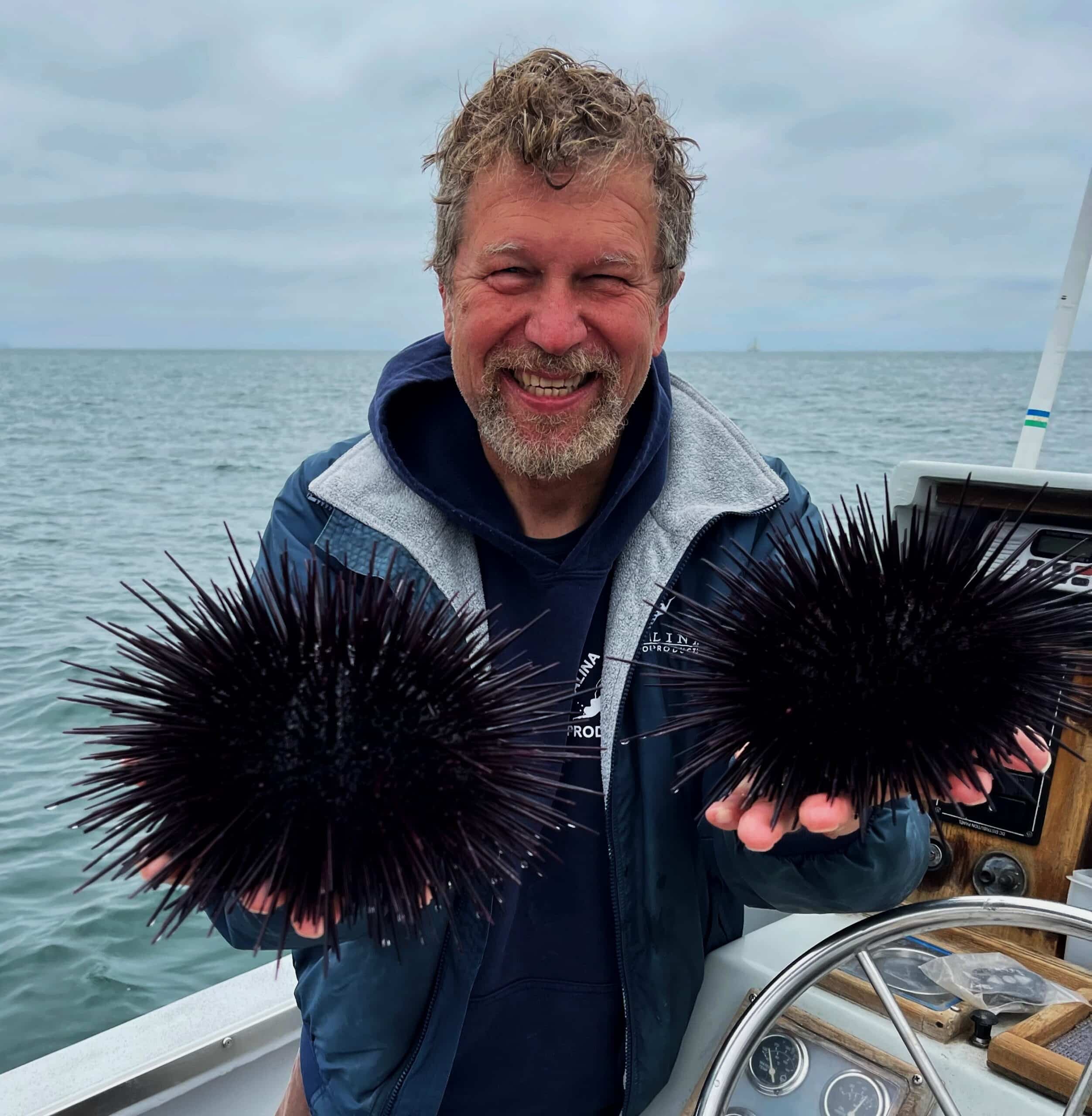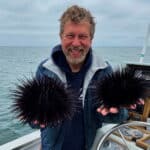
Store Closed June 2 – Rock n Roll Marathon
Catalina Offshore Products Inc will have its main entrance to our facility blocked off for construction. During this time we will have a detour to enter our facility from a slight detour.
FREE Overnight Shipping on orders over $300 ($200 in CA. Some suburbs are not included).
By Rebecca Gardon

Did you know that Catalina Offshore Products runs almost completely on solar power? Walk into our fresh seafood facility and there’s nearly an acre of panels above your head quietly powering coolers, offices and the lights. They were installed in 2009 to keep in line with our emphasis on sustainability.
“Solar power is good for the environment and our business,” says our CEO Dave Rudie. “It’s also an investment that protects sea urchins, one of our most valuable products. Carbon dioxide pollution is affecting the pH of the ocean and urchins are damaged by highly acidic waters, so as CO2 increases in the ocean, sea urchins may experience problems. By switching to solar we are producing much less carbon dioxide.”
Solar is just one of many ways Catalina maintains its commitment to becoming more sustainable.
We recently partnered with Seafood for the Future. We turn waste from byproducts or processing sea urchins into recreational fishing bait called Uni Butter® and Uni Goop®. We also promote the idea of using the whole fish. Often we talk to our customers about the different ways to cook a whole fish, as well as about lesser-known edibles such as fish collars which are typically full of succulent meat. Another part of the fish that is edible is the bone marrow in swordfish. San Diego-based chefs Miguel Valdez of 100 Wines and George Morris of Beaumont’s are fans of swordfish marrow. So is Travel Channel’s Andrew Zimmern, who was introduced to it by our resident fishmonger Tommy Gomes while filming the San Diego episode of Bizarre Foods America. If you haven’t had it before, just think of the soft, gelatinous texture of beef bone marrow but with fresh ocean flavor!
|
|

Catalina Offshore Products Inc will have its main entrance to our facility blocked off for construction. During this time we will have a detour to enter our facility from a slight detour.

Catalina Offshore Products Inc will have its main entrance to our facility blocked off for construction. During this time we will have a detour to enter our facility from a slight detour.

Catalina Offshore Products Inc announces sale to Beish Holdings Inc., DBA Catalina Offshore Products, as founder Dave Rudie sets sail for retirement after 46 years.

Store Closed June 2 – Rock n Roll Marathon
Catalina Offshore Products Inc will have its main entrance to our facility blocked off for construction. During this time we will have a detour to enter our facility from a slight detour.

Road Closures and Detours for March 15 – March 18
Catalina Offshore Products Inc will have its main entrance to our facility blocked off for construction. During this time we will have a detour to enter our facility from a slight detour.

Catalina Offshore Products Inc announces sale to Beish Holdings Inc., DBA Catalina Offshore Products, as founder Dave Rudie sets sail for retirement after 46 years.